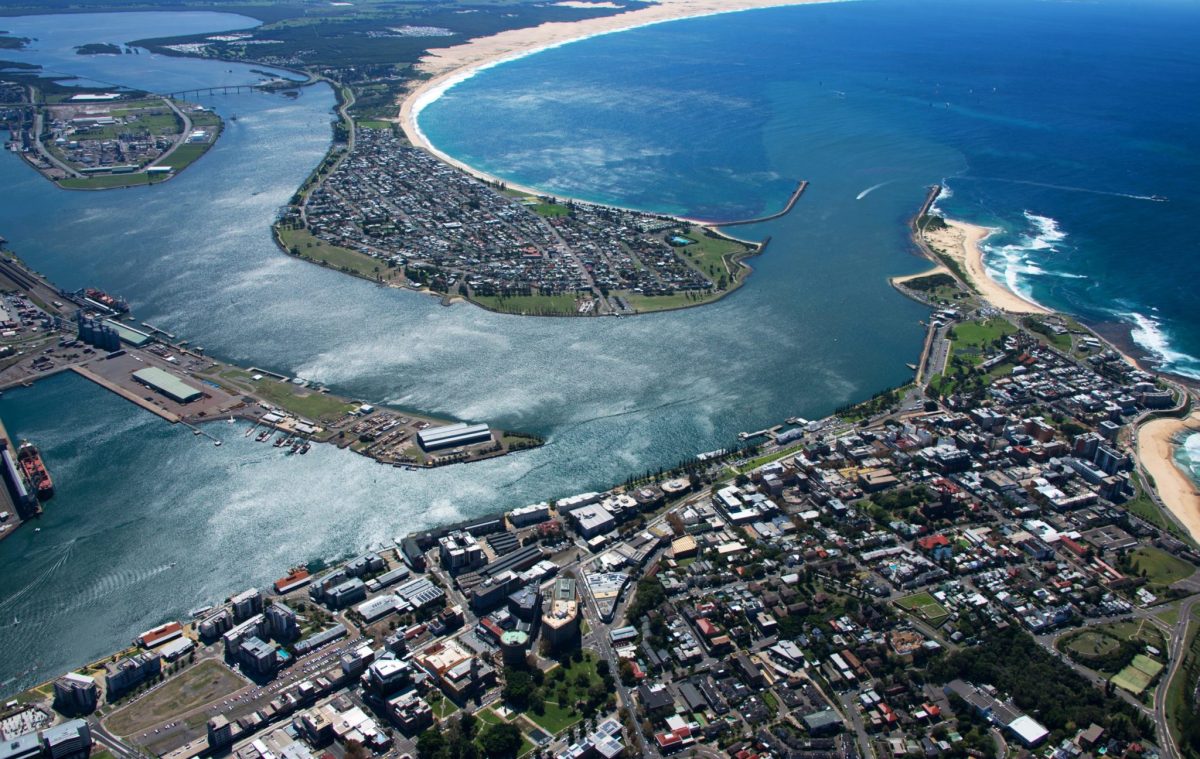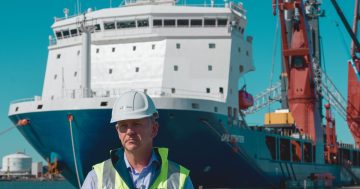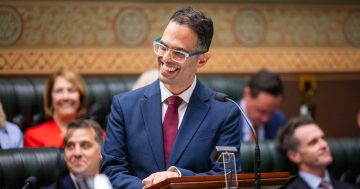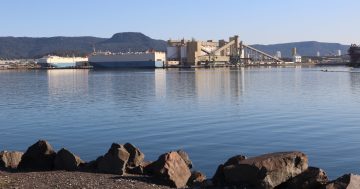
NSW Ports confirmed it agreed to the release of the documents at the request of the State Government, but hadn’t seen a copy of the Deloitte report nor been involved in its preparation. Photo: Port of Newcastle.
In a report commissioned by NSW Treasury, preliminary estimates suggest the state could be liable for between $600 million and $4.3 billion due to the privatisation of ports under the former Coalition government.
The state’s Liberal-National government sold off Port Botany and Port Kembla to NSW Ports in 2013, along with the Port of Newcastle to a separate buyer one year later.
Modelling by Deloitte Access Economics in the report commissioned by NSW Treasury showed the state’s liability to these operators could range between $600 million in 2024 and up to $4.3 billion in 2063 when the contract is set to end.
Legislation passed in 2022 eliminated the Port of Newcastle’s liability to the state for developing a new container port. However, it was on the condition they agreed to compensate the state with an amount determined by the NSW Independent Pricing and Regulatory Tribunal (IPART), which it recently announced to be $13 million.
If the one-off compensation payment is made and the Port of Newcastle handles container trade above a specified level, it will no longer have to reimburse the State Government for compensation payments owed to NSW Ports.
These contracts, along with boxes of other privatisation deeds, were tabled in NSW parliament on 21 March. It followed State Treasurer Daniel Mookhey’s request for consent to do so from port owners in October.
“After more than a decade, the people of NSW are finally seeing what the impact of selling off their assets looks like,” Mr Mookhey said. “They shouldn’t have had to wait this long to see these contracts.
“The public deserves to know exactly what is in the agreements made when public assets were privatised.”
One of Labor’s core policies in the 2023 state election was opposing privatisation, as the Coalition lauded the advantages of its ”asset recycling” scheme. Despite this, the former government eventually committed to no further privatisation if it was re-elected.
Days before these documents were tabled, NSW Premier Chris Minns called out the Prime Minister to ask whether the $1.65 billion carve-up of his state was accidental or deliberate in the independent review of Australia’s system for GST revenue distribution.
According to its March update, NSW will receive $310 million less in GST for the 2024-25 financial year compared with this one.
Mr Mookhey told ABC Radio that it would now be “virtually impossible” to return a surplus to the state’s budget next year.
In response to the contracts being tabled, the Port of Newcastle told Daily Cargo News (DCN) they should never have been withheld in the first place.
“Port of Newcastle welcomes the release of the port documents and supports the Treasurer’s decision to do so,” CEO Craig Carmody said.
“Privatising public assets should not only be undertaken for the funding received from the sale, but to also encourage competition, with the ultimate beneficiary the consumer.
“Unfortunately, this didn’t occur with the sale of the ports within NSW, case in point being our need to pursue the Port of Newcastle [Extinguishment of Liability] Act 2022, led by the Member for Lake Macquarie Greg Piper MP and supported by all political parties in NSW.
“With the documents now made public and the IPART determination concluding the legislative process this year, we look forward to ensuring real competition between NSW’s ports to the benefit of all consumers and businesses in NSW.”
NSW Ports told DCN that building a container terminal at the Port of Newcastle would only add to the state’s cost-of-living pressures, and require billions of dollars of government investment in supporting infrastructure.
“Almost all of the state’s import containers are delivered within 50 kilometres of Port Botany, closest to the state’s most populated areas and business centres,” a NSW Ports spokesperson said.
“The proximity of Port Botany to these centres provides the most cost-effective, efficient and sustainable supply chain, compared with a 160-to-200-kilometre journey from the Port of Newcastle.”








